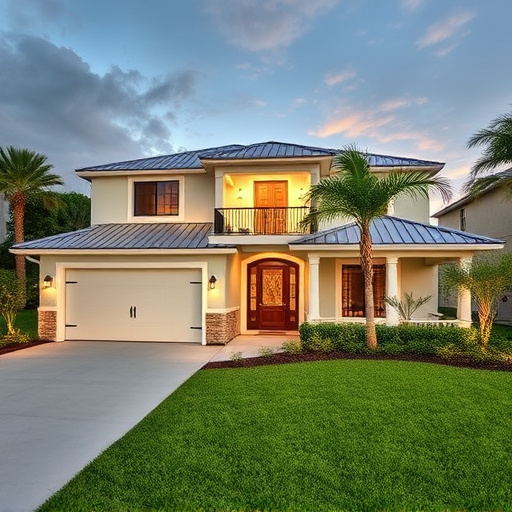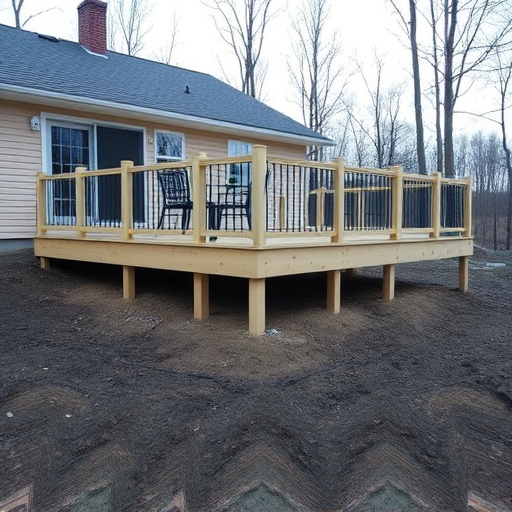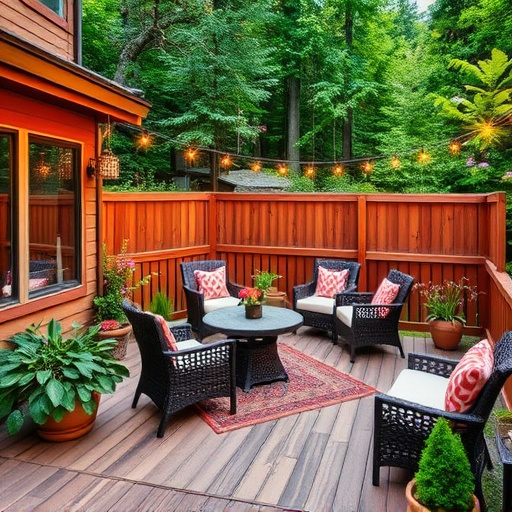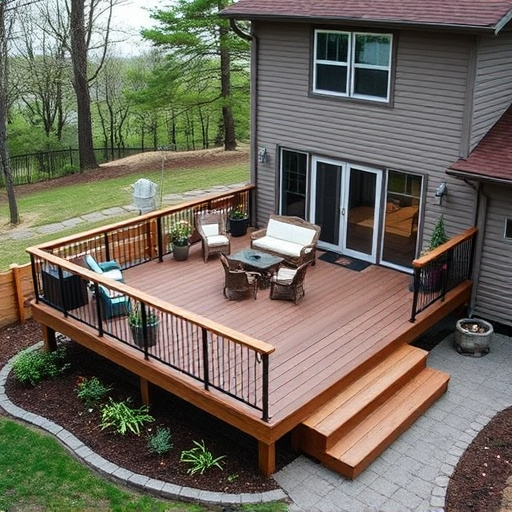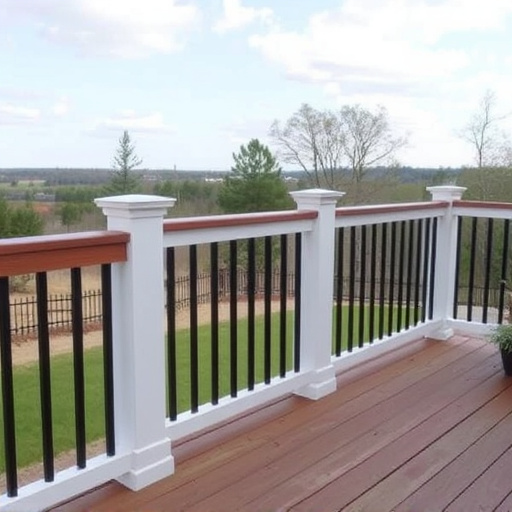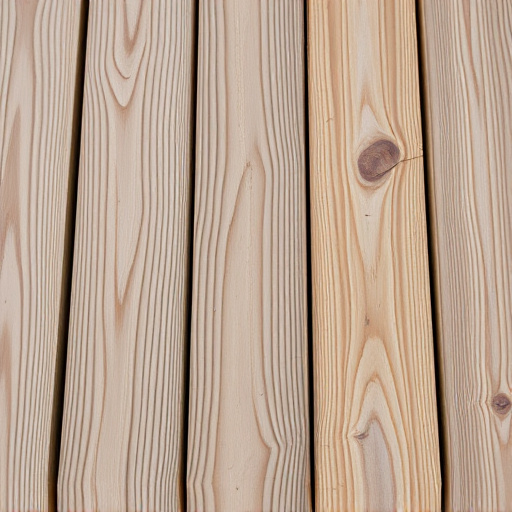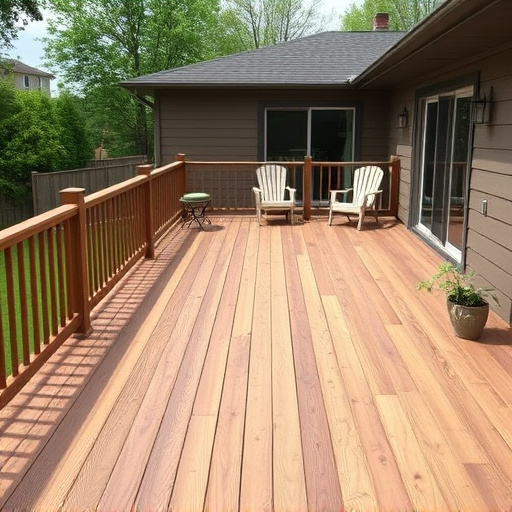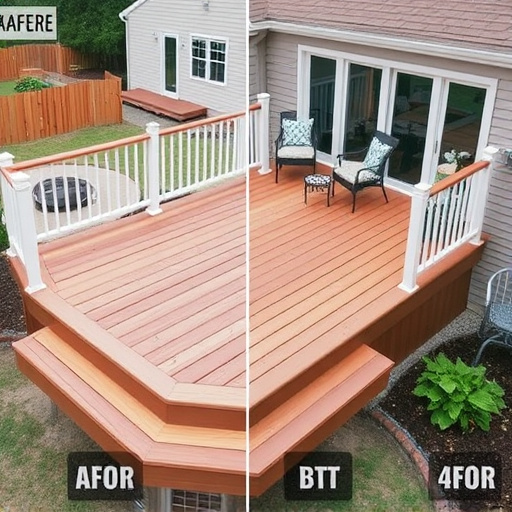Selecting wood for an outdoor deck requires considering location, exposure, intended use, and budget. Cedar offers natural resistance to rot and insects but is expensive, while treated pine is affordable but needs regular maintenance. Composite materials are gaining popularity for commercial projects due to strength and low maintenance. Consulting professionals ensures informed decisions that enhance the beauty and longevity of your outdoor deck.
Planning an outdoor deck project? Choosing the right wood is crucial for a durable, low-maintenance space. This guide will help you navigate the options, from understanding your specific needs to selecting the perfect type of wood. We’ll break down the pros and cons of popular deck woods and highlight key factors to consider, ensuring you make an informed decision that creates a beautiful, long-lasting outdoor oasis.
- Understanding Your Outdoor Deck Project Needs
- Types of Wood for Decks: Pros and Cons
- Factors to Consider When Choosing Deck Wood
Understanding Your Outdoor Deck Project Needs
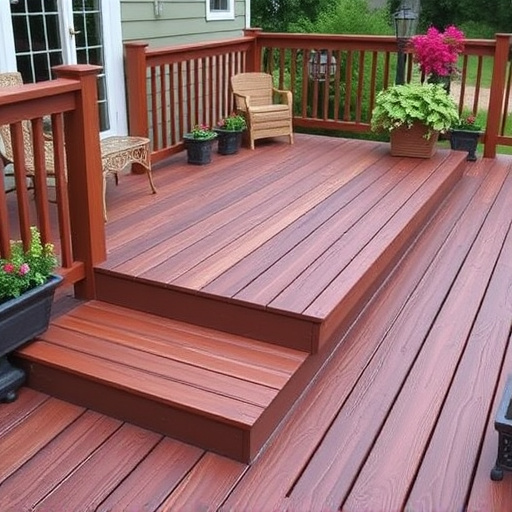
Before selecting the right wood for your outdoor deck project, it’s crucial to understand your specific needs and goals. Different projects require varying levels of durability, aesthetics, and maintenance. For instance, a deck that will be subjected to intense sunlight and moisture needs a wood species that can withstand these conditions without compromising its structural integrity over time. Consider factors like the deck’s location, exposure to elements, intended use (e.g., entertaining, relaxation), and your budget.
Understanding your project scope also involves evaluating potential long-term care requirements. Some woods naturally resist decay and weather damage, reducing the need for frequent maintenance or storm damage repair. Consulting with a professional in home exterior services can provide valuable insights tailored to your outdoor deck project. This expert guidance ensures you make an informed decision that aligns perfectly with your vision, enhancing the beauty and longevity of your deck.
Types of Wood for Decks: Pros and Cons
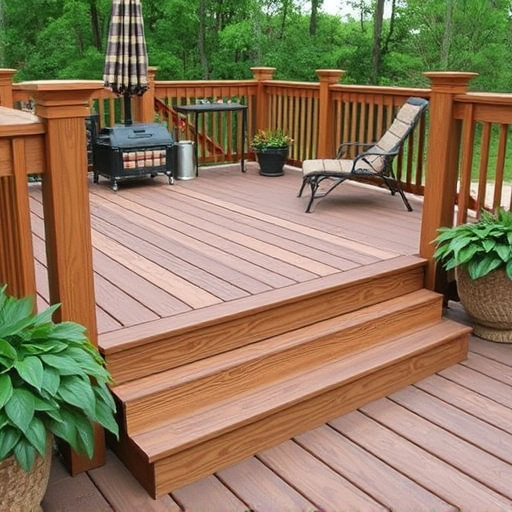
When considering wood for your outdoor deck project, understanding the various types available is crucial. Different woods offer unique characteristics, making them more suitable for specific purposes and environments. For instance, cedar has long been a popular choice due to its natural resistance to rot and insects, making it ideal for exterior applications. This softwood is also known for its pleasant aroma and attractive grain patterns. However, cedar can be relatively expensive compared to other options.
On the other hand, treated pine is a more affordable alternative, especially for residential roofing and siding projects. It’s pressure-treated to resist rot and insect damage, making it durable and low-maintenance. Yet, over time, treated pine may require occasional re-staining or sealing to maintain its appearance. For commercial roofing applications, concrete and composite materials are gaining popularity due to their exceptional strength, longevity, and low-maintenance requirements—a game-changer for demanding industrial settings, contrasting with the traditional reliance on residential roofing, siding, and gutters.
Factors to Consider When Choosing Deck Wood
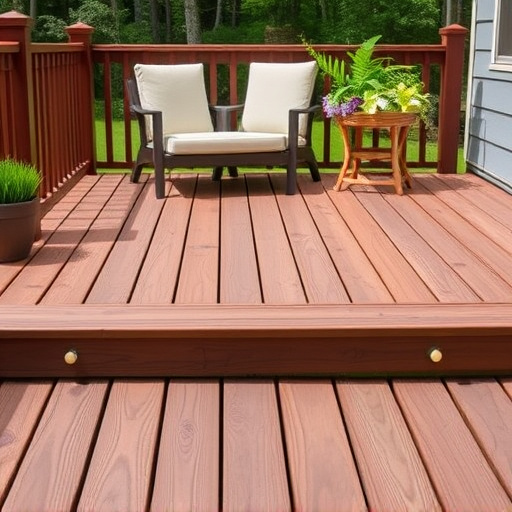
When planning an outdoor deck project, selecting the suitable wood is a pivotal decision that significantly impacts the durability and aesthetics of your deck. Several factors come into play, requiring careful consideration to ensure your investment stands the test of time and enhances your home exterior services. Firstly, understand the exposure level your deck will have to various elements such as sun, rain, and wind. Different woods have varying resistance to decay, insect infestation, and weather changes, so choosing a species suited to these conditions is essential.
Moisture content is another critical aspect. Woods like cedar are renowned for their natural resistance to rot and moisture, making them an excellent choice for outdoor decks. Moreover, the texture and finish you desire should align with your design vision. Some woods offer unique grain patterns or tonal variations that can dramatically impact the overall look of your deck. Consulting with professionals in roof consulting or home exterior services can provide valuable insights into maintaining and enhancing your deck’s beauty over time.
When planning your outdoor deck project, selecting the right wood is key. By understanding your specific needs, considering various types, and factoring in durability, aesthetics, and budget, you can make an informed choice that enhances your outdoor space for years to come. Choose wisely, and your deck will become a beautiful, functional part of your home.




